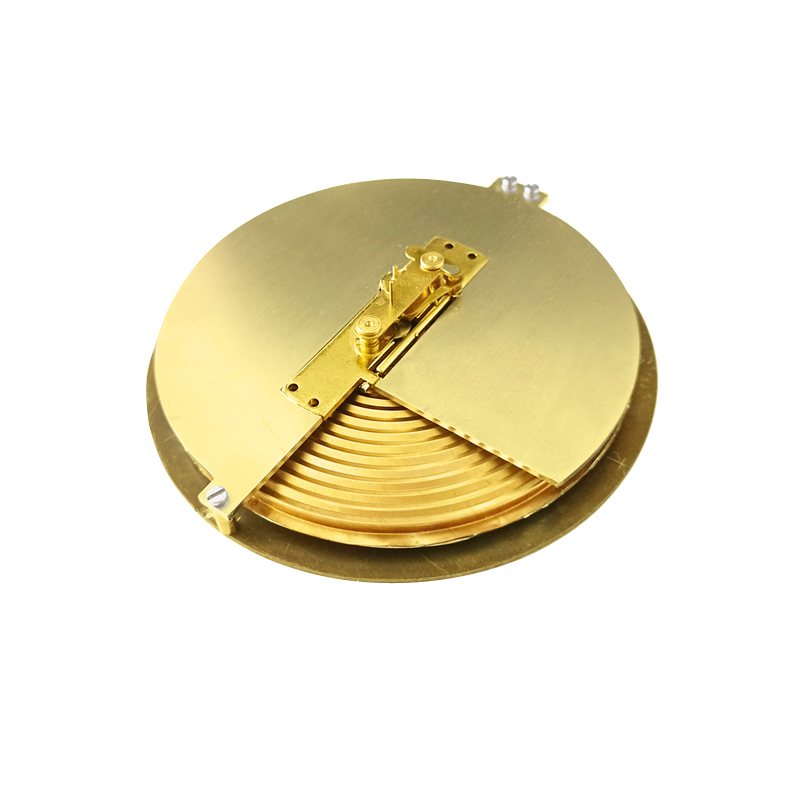
8月 . 30, 2024 21:50 Back to list
best about diaphragm pressure gauge
Understanding Diaphragm Pressure Gauges
Diaphragm pressure gauges are crucial instruments used widely across various industries to measure and monitor pressure in different applications. Their design and functionality make them particularly suited for applications involving corrosive environments, viscous fluids, and high-pressure scenarios. In this article, we will explore the best features of diaphragm pressure gauges, their applications, and how they contribute to efficient and accurate pressure measurements.
What is a Diaphragm Pressure Gauge?
At its core, a diaphragm pressure gauge consists of a sensing element – a flexible diaphragm – that responds to pressure changes. When pressure is applied, the diaphragm deflects; this movement is then translated into a measurable output. This sophisticated mechanical motion ensures high accuracy and sensitivity, allowing users to gauge pressure effectively.
Key Features and Advantages
1. Corrosion Resistance One of the most significant advantages of diaphragm pressure gauges is their ability to operate in corrosive environments. Unlike traditional gauges, which may be susceptible to rust or degradation, diaphragm gauges can be constructed from various resistant materials such as stainless steel or specific alloys that withstand harsh conditions.
2. Viscous and Slurry Applications Diaphragm gauges are also ideal for measuring the pressure of viscous fluids and slurries. The design minimizes the risk of clogging, which can be a common issue in other types of pressure measurement devices.
best about diaphragm pressure gauge

3. High Accuracy and Reliability These gauges provide consistent and reliable measurements, making them suitable for critical applications where precision is paramount. Their design allows for a quick response to pressure changes, enabling real-time monitoring and quick adjustments in processes.
4. Versatility Diaphragm pressure gauges come in various sizes and configurations, making them highly versatile for different industries. From pharmaceuticals to food processing, their ability to adapt to numerous environments and conditions is invaluable.
5. Ease of Maintenance Many diaphragm pressure gauges are designed for easy maintenance and calibration, ensuring that the system remains operational and reliable over extended periods. Regular servicing can enhance the lifespan and performance of these instruments.
Applications of Diaphragm Pressure Gauges
Diaphragm pressure gauges are widely used across numerous sectors. In the chemical industry, they monitor the pressure of aggressive fluids during manufacturing processes. In the water treatment sector, they help in managing the pressure of water and wastewater systems. Additionally, in the oil and gas industry, they are employed in monitoring pressures in pipelines and equipment, ensuring safe and efficient operation.
Conclusion
In a world where precision and reliability are paramount, diaphragm pressure gauges stand out as an invaluable tool across numerous applications. Their resilience in hostile environments, coupled with their high accuracy and easy maintenance, makes them an ideal choice for industries requiring robust pressure measurement solutions. As technology advances, diaphragm gauges will continue to evolve, further improving their functionality and broadening their applications, ensuring that they remain at the forefront of pressure measurement technology for years to come.
-
High-Precision 5 Valve Manifold Differential Pressure Gauge Suppliers
NewsApr.29,2025
-
High-Precision Diaphragm Vacuum Pressure Gauges Manufacturers & Quotes
NewsApr.29,2025
-
Omega Differential Pressure Gauges High Accuracy & Durability
NewsApr.28,2025
-
Low Pressure Differential Pressure Gauges Precision Solutions & Quotes
NewsApr.28,2025
-
Digital Diaphragm Pressure Gaauge Precision Measurement & OEM Quotes
NewsApr.28,2025
-
Differential Pressure Gauge China Price High-Accuracy & Best Quotes
NewsApr.28,2025
